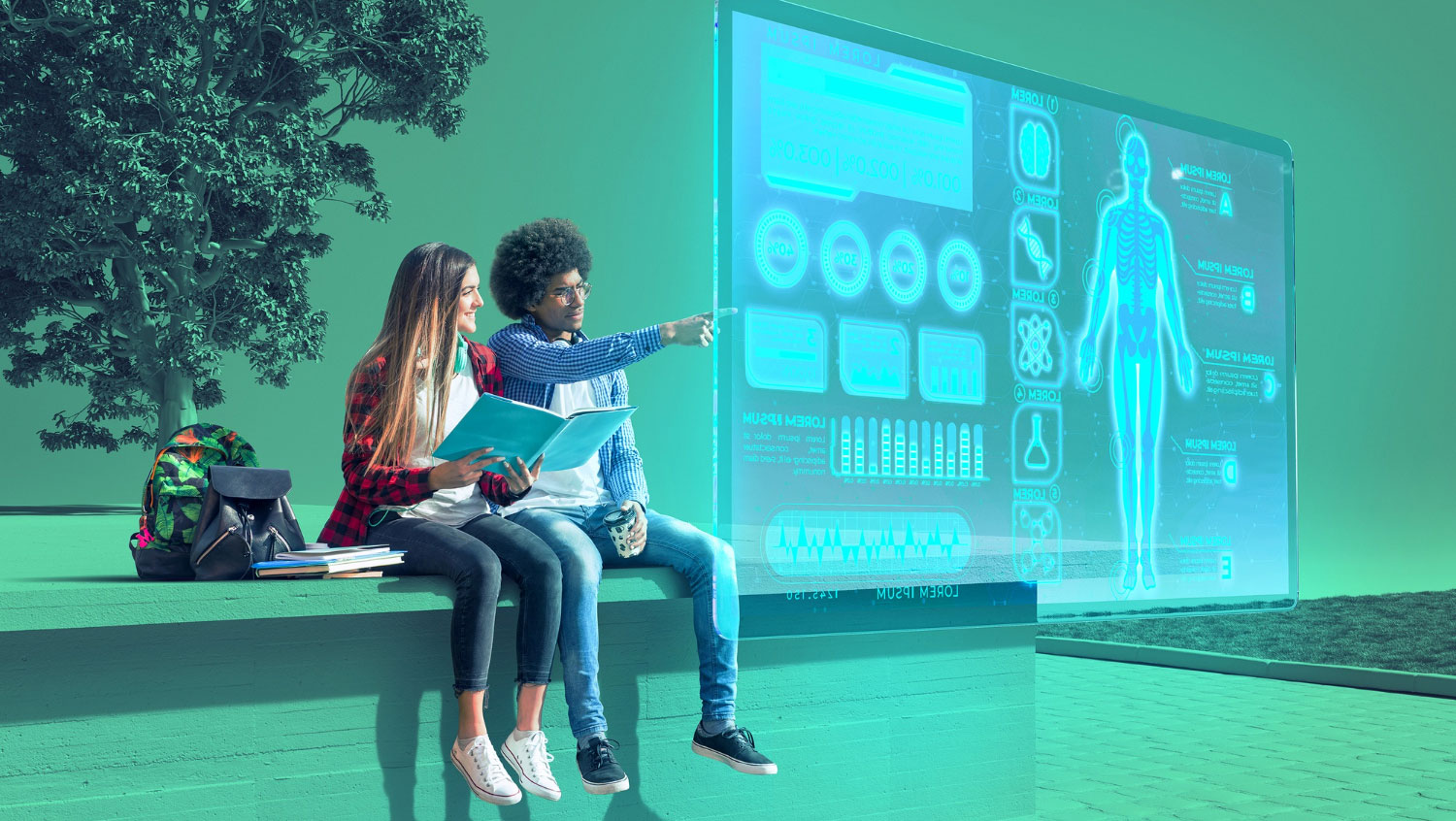The Impact of Artificial Intelligence (AI) on Education
Enhancing Learning Experiences

Artificial Intelligence (AI) is reshaping the landscape of education, offering new opportunities to enhance learning experiences and improve outcomes for students and educators alike. By harnessing the power of AI, educational institutions can personalize learning, streamline administrative tasks, and provide targeted support to students.
One of the key benefits of AI in education is its ability to personalize learning experiences. Adaptive learning platforms use AI algorithms to analyze student data and tailor instruction to meet the unique needs of each learner. For example, AI can identify areas where a student may be struggling and provide additional support or offer advanced material to students who are ready to move ahead.
AI can also help educators save time on administrative tasks, such as grading assignments and managing student records. Automated grading systems can provide instant feedback to students, allowing them to learn from their mistakes and improve their performance. Similarly, AI-powered tools can help educators track student progress and identify areas where additional support may be needed.
Another area where AI is making an impact is in providing personalized support to students. Chatbots powered by AI can provide students with instant answers to their questions, whether they are related to coursework, schedules, or other aspects of student life. These chatbots can also offer guidance on study habits and time management, helping students develop the skills they need to succeed.
AI is also being used to develop virtual tutors that can provide one-on-one support to students. These virtual tutors can adapt their teaching style to match the individual learning preferences of each student, providing a more personalized and effective learning experience.
Despite the many benefits of AI in education, there are also challenges that need to be addressed. For example, there are concerns about the potential for bias in AI algorithms, particularly when it comes to making decisions that affect students’ academic or professional futures. Additionally, there are questions about the ethical use of AI in education, particularly when it comes to issues of privacy and data security.
In conclusion, AI has the potential to revolutionize education by providing personalized learning experiences, streamlining administrative tasks, and providing targeted support to students. As educators continue to explore the possibilities of AI, the future of education looks brighter and more innovative than ever before.

Related News
The Government launches a Digital Education Program with a Chinese Grant
The Sri Lankan government recently launched a national Education Digitalisation Programme funded through a Chinese grant, aiming to reduce digital inequality in…
Read MoreDare to dream, Learn to lead
Unleashing the inner changemaker Leadership is not defined by titles or positions. It is shaped by vision, resilience, and the willingness to…
Read MoreNew education reforms aim to ease burden on parents and children: PM
Prime Minister Dr. Harini Amarasuriya on Saturday reiterated the government’s commitment to building an education system that does not place a burden…
Read MoreSajith tells PM: Opposition not against reforms, but against vulgarising education
Opposition Leader Sajith Premadasa on Friday(16) said the opposition is not against education reforms, but strongly opposes what he described as the…
Read MoreNSBM Green University Inaugurates 2026 New Degree Intake on February 23
The Inauguration Ceremony of 2026 new intake of degree programmes at NSBM Green University is scheduled to be held on February 23.…
Read MoreCourses
-

MBA in Project Management & Artificial Intelligence – Oxford College of Business
In an era defined by rapid technological change, organizations increasingly demand leaders who not only understand traditional project management, but can also… -

Scholarships for 2025 Postgraduate Diploma in Education for SLEAS and SLTES Officers
The Ministry of Education, Higher Education and Vocational Education has announced the granting of full scholarships for the one-year weekend Postgraduate Diploma… -

Shape Your Future with a BSc in Business Management (HRM) at Horizon Campus
Human Resource Management is more than a career. It’s about growing people, building organizational culture, and leading with purpose. Every impactful journey… -

ESOFT UNI Signs MoU with Box Gill Institute, Australia
ESOFt UNI recently hosted a formal Memorandum of Understanding (MoU) signing ceremony with Box Hill Institute, Australia, signaling a significant step in… -

Ace Your University Interview in Sri Lanka: A Guide with Examples
Getting into a Sri Lankan sate or non-state university is not just about the scores. For some universities' programmes, your personality, communication… -

MCW Global Young Leaders Fellowship 2026
MCW Global (Miracle Corners of the World) runs a Young Leaders Fellowship, a year-long leadership program for young people (18–26) around the… -

Enhance Your Arabic Skills with the Intermediate Language Course at BCIS
BCIS invites learners to join its Intermediate Arabic Language Course this November and further develop both linguistic skills and cultural understanding. Designed… -

Achieve Your American Dream : NCHS Spring Intake Webinar
NCHS is paving the way for Sri Lankan students to achieve their American Dream. As Sri Lanka’s leading pathway provider to the… -

National Diploma in Teaching course : Notice
A Gazette notice has been released recently, concerning the enrollment of aspiring teachers into National Colleges of Education for the three-year pre-service… -

IMC Education Features Largest Student Recruitment for QIU’s October 2025 Intake
Quest International University (QIU), Malaysia recently hosted a pre-departure briefing and high tea at the Shangri-La Hotel in Colombo for its incoming… -

Global University Employability Ranking according to Times Higher Education
Attending college or university offers more than just career preparation, though selecting the right school and program can significantly enhance your job… -

Diploma in Occupational Safety & Health (DOSH) – CIPM
The Chartered Institute of Personnel Management (CIPM) is proud to announce the launch of its Diploma in Occupational Safety & Health (DOSH),… -

Small Grant Scheme for Australia Awards Alumni Sri Lanka
Australia Awards alumni are warmly invited to apply for a grant up to AUD 5,000 to support an innovative project that aim… -

PIM Launches Special Programme for Newly Promoted SriLankan Airlines Managers
The Postgraduate Institute of Management (PIM) has launched a dedicated Newly Promoted Manager Programme designed to strengthen the leadership and management capabilities… -

IMC – Bachelor of Psychology
IMC Education Overview IMC Campus in partnership with Lincoln University College (LUC) Malaysia offers Bachelor of Psychology Degree right here in Sri…
Newswire
-

Manusha withdraws FR petition after CID assurance of no arrest
ON: January 19, 2026 -

ICC T20 World Cup trophy to tour Sri Lanka from January 21–24
ON: January 19, 2026 -

SLTB driver sentenced to one year RI over fatal bus crash
ON: January 19, 2026 -

Doctors to launch islandwide continuous action if demands unmet by Jan 23
ON: January 19, 2026










